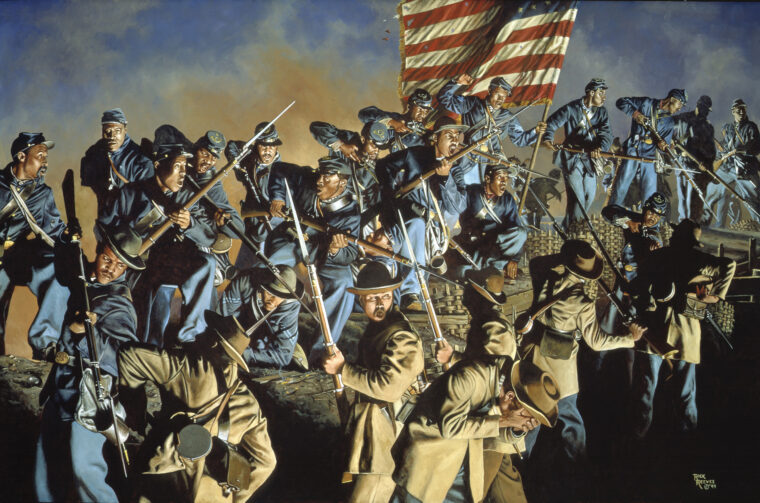
Union Army
One Gallant Rush: Black Soldiers at Fort Wagner
By Eric NiderostThe sun had already set, but the western sky was still bright from its fiery departure not long before. Read more

Union Army
The sun had already set, but the western sky was still bright from its fiery departure not long before. Read more
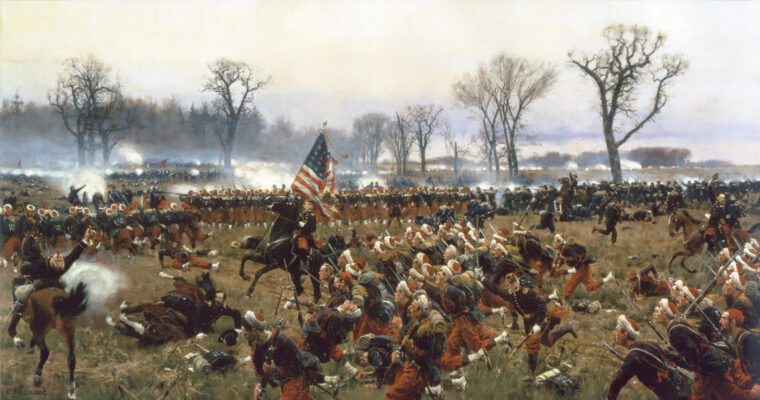
Union Army
Word spread like wildfire through the camps of the Army of the Potomac during the second week of November 1862: “Little Mac” was out, “Old Burn” was in. Read more
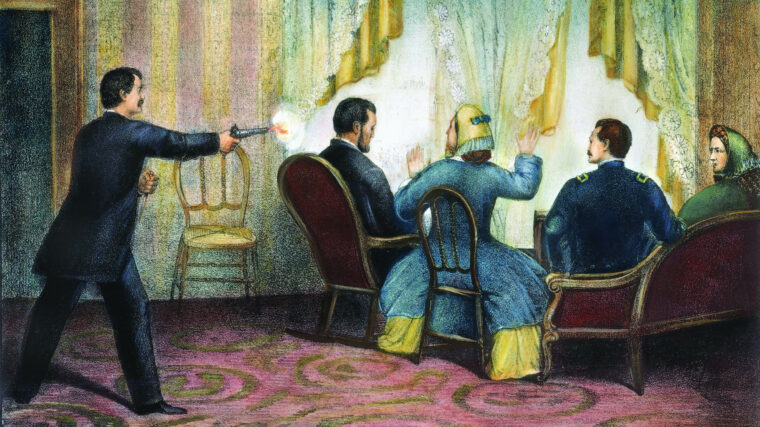
Union Army
In the late hours of April 14, 1865, Secretary of War Edwin Stanton sat at a small table in the Petersen House across the street from Ford’s Theater in Washington, D.C. Read more
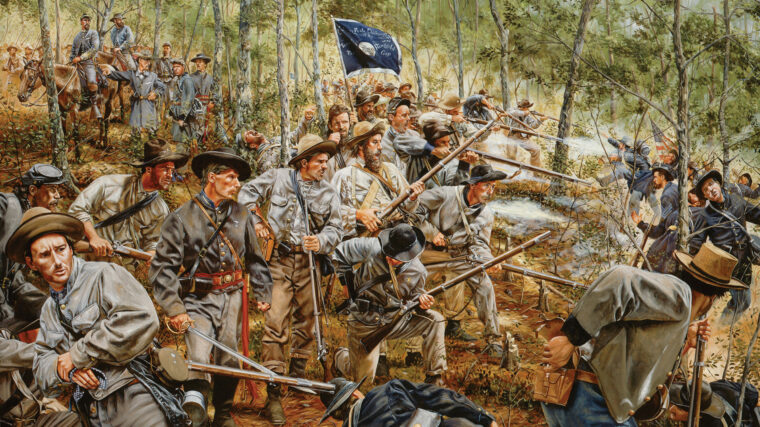
Union Army
Peering through the thick underbrush west of Little Pumpkin Vine Creek, 30 miles northwest of Atlanta, on the afternoon of May 27, 1864, Ambrose Bierce had a bad feeling. Read more
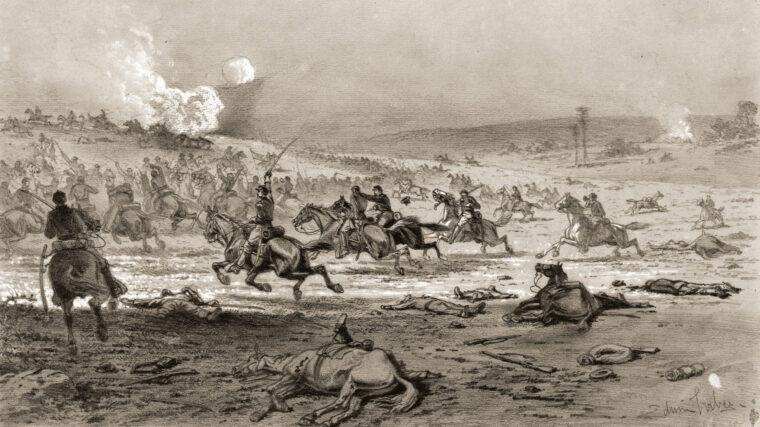
Union Army
“We have been badly used up,” a sergeant in the 5th New York Volunteer Cavalry Regiment complained in a letter to his wife on May 8, 1864, four days before J.E.B. Read more
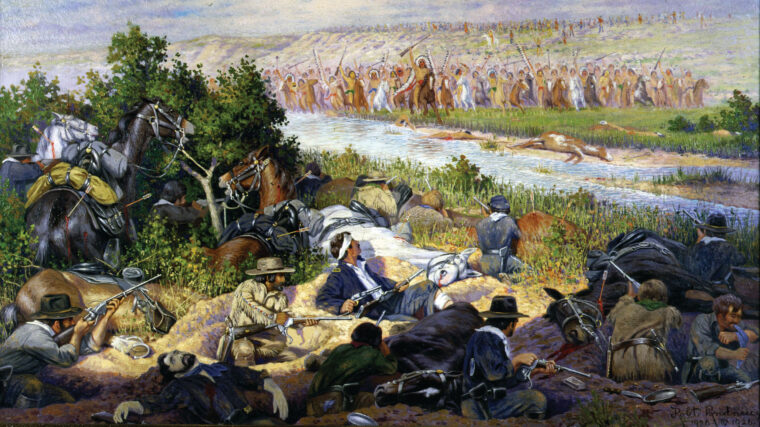
Union Army
“Indians! Indians!” The staple warning from countless cliché-ridden dime novels was all too real at dawn of a Colorado morning in 1868. Read more
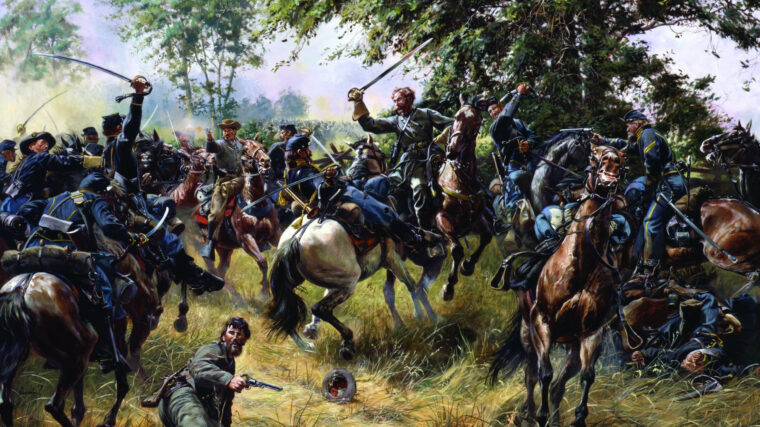
Union Army
An angry gloom hung like dust over the 6,000 Confederate cavalrymen trooping up the York Turnpike in the early dawn of July 3, 1863. Read more
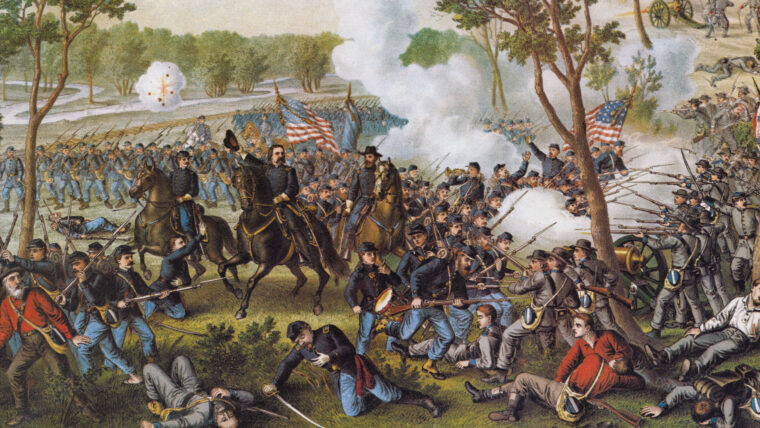
Union Army
During the Civil War, the strategic importance of Vicksburg, Mississippi, was readily apparent to both the Union and the Confederacy. Read more
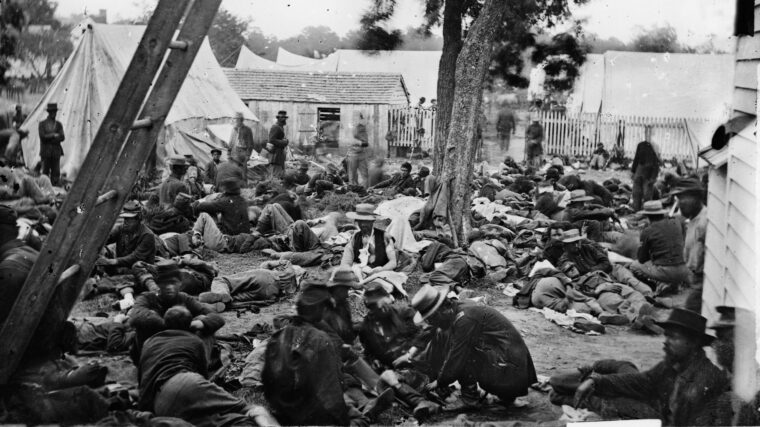
Union Army
Safe behind its ocean barriers, the United States paid scant attention to the wars that raged abroad during the early 19th century, taking little notice of the lessons that might have been learned from the European experience with mass killing. Read more
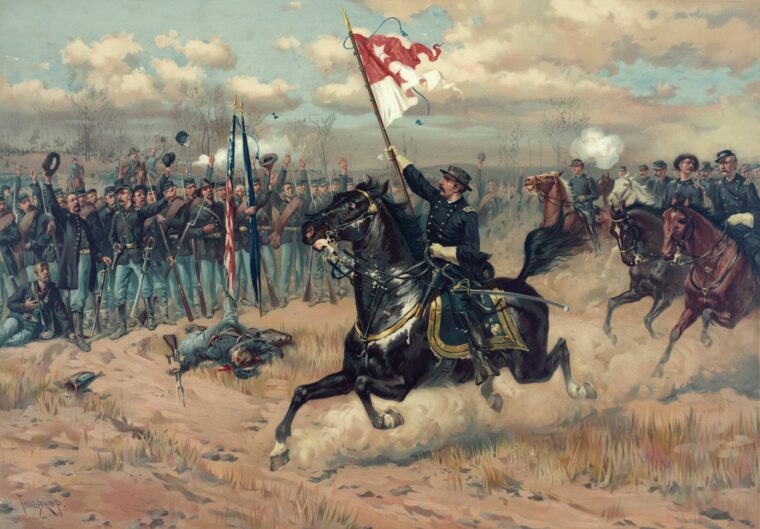
Union Army
Phil Sheridan had a bad feeling. The bantam-sized Union general always trusted his instincts, and now, in mid-October 1864, those instincts were telling him that trouble was brewing back at the front, where his Army of the Shenandoah was encamped near Cedar Creek, Virginia, resting and relaxing after a busy few weeks burning civilian farms and slaughtering thousands of head of livestock from Staunton north to Woodstock. Read more
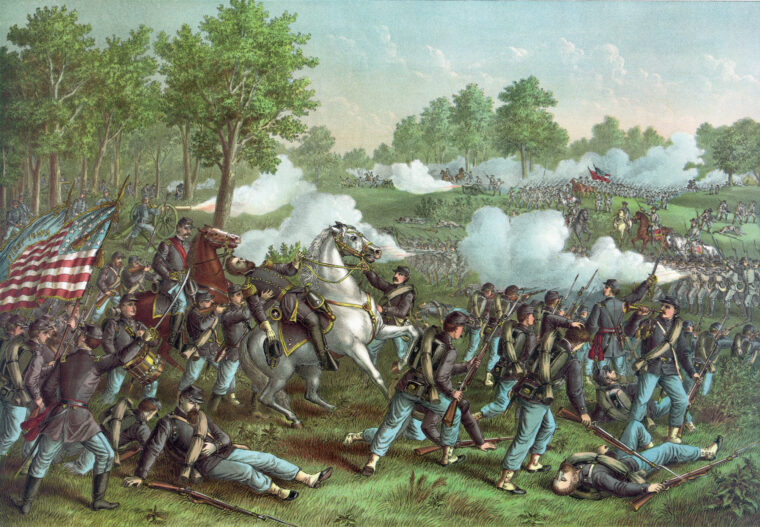
Union Army
At the beginning of 1861, Missouri was in turmoil. A slave state since its inception in 1820, Missouri had grown increasingly tied to urban industry. Read more
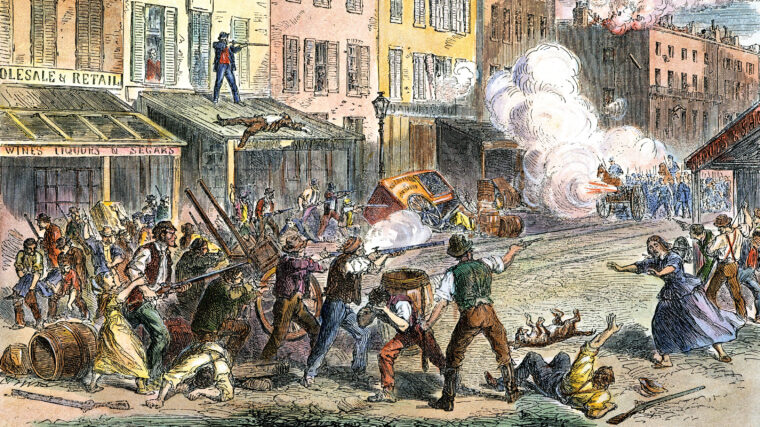
Union Army
For four breathlessly hot days in mid-July 1863, New York City became the northernmost battleground of the Civil War. Read more
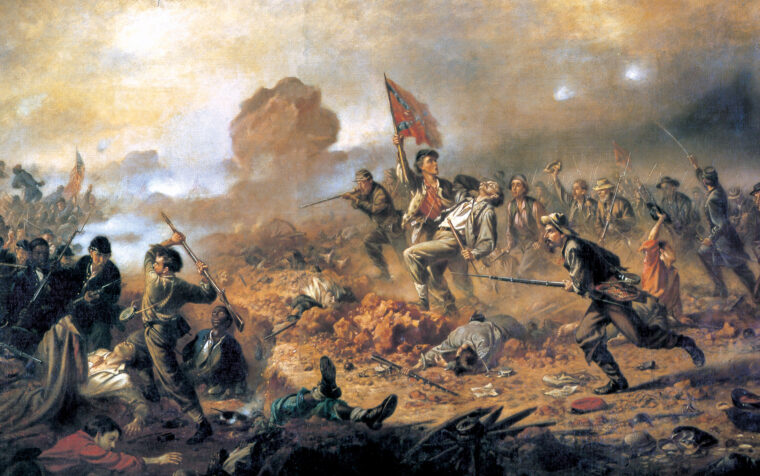
Union Army
It was just after 3 am on Saturday, July 30, 1864. A month of relative quiet along a two-mile stretch of Union and Confederate trench lines immediately east of Petersburg, Virginia, was about to come to an explosive end. Read more
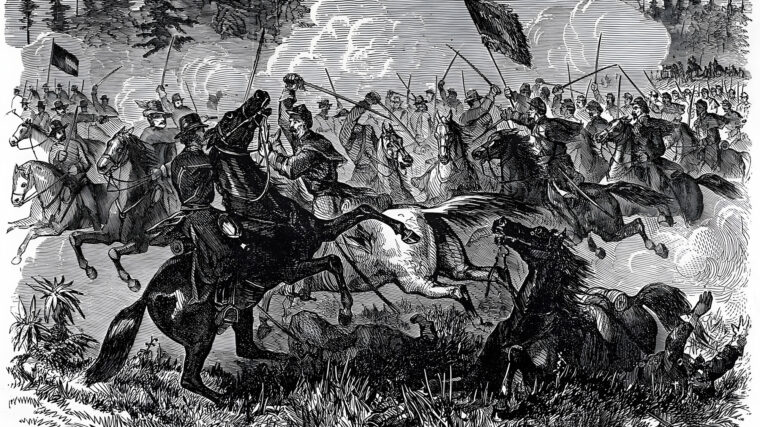
Union Army
Napoleon Alexandre Duffie was born on May 1, 1833, in Paris, France. His father, Jean August Duffie, was a prosperous sugar refiner and mayor of the village of La Ferte-sous-Jouarre. Read more
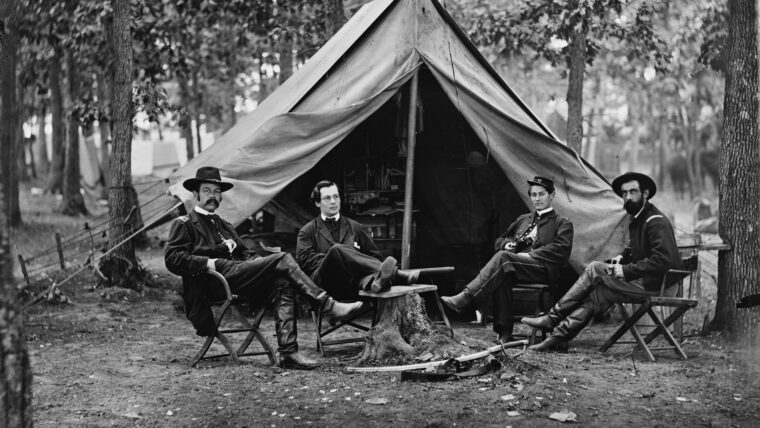
Union Army
The Union officer saw it quite clearly across the Rappahannock River: a hand-painted sign held up by a Rebel soldier that read, “Burnside and his pontoons stuck in the mud. Read more
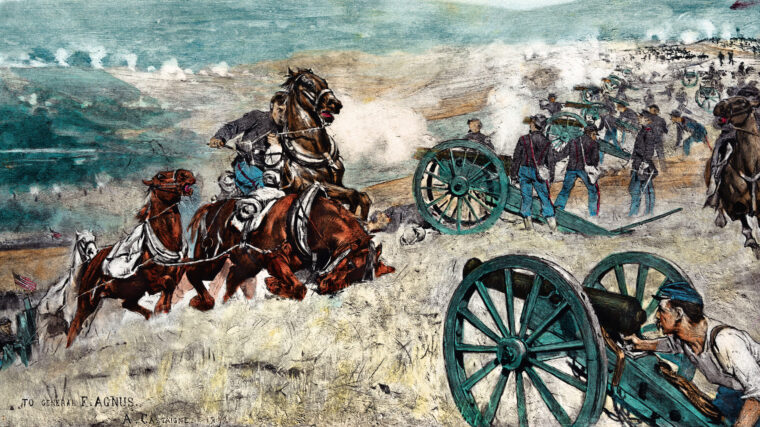
Union Army
As Confederate General Robert E. Lee and his I Corps commander, Maj. Gen. James Longstreet, rode together on horseback along the dust-choked Quaker Road from Glendale to Malvern Hill on the morning of July 1, 1862, they stopped to confer with Maj. Read more
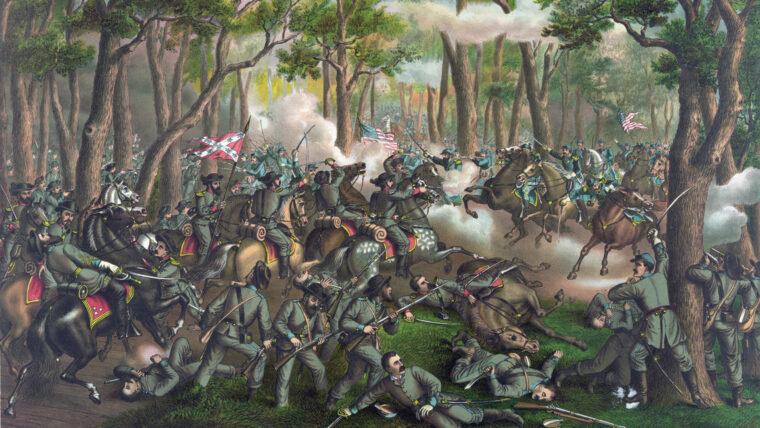
Union Army
The column of Confederates marched east as quietly as possible along the bed of an unfinished railroad that knifed through the Wilderness south of the Rapidan River shortly before midday on May 6, 1864. Read more
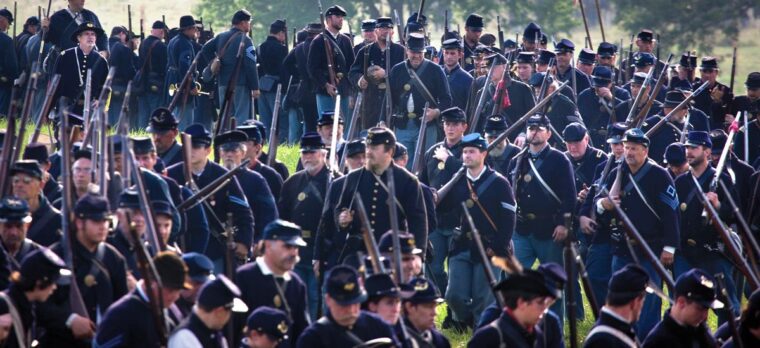
Union Army
By Mike Phifer
On July 2, the day of the Battle of Gettysburg’s Peach Orchard conflict, Army of the Potomac commander Maj. Read more
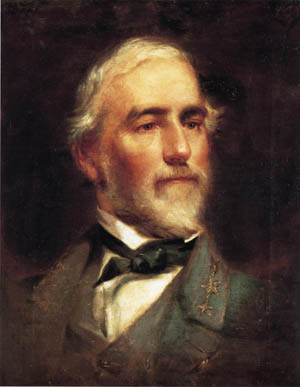
Union Army
When the Civil War broke out, Robert E. Lee of Virginia was offered command of the Union army. Read more
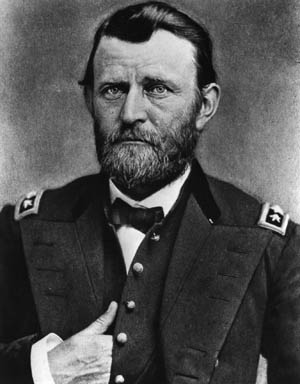
Union Army
Born in Ohio in 1822, Ulysses S. Grant graduated from the United States Military Academy at West Point in 1843. Read more